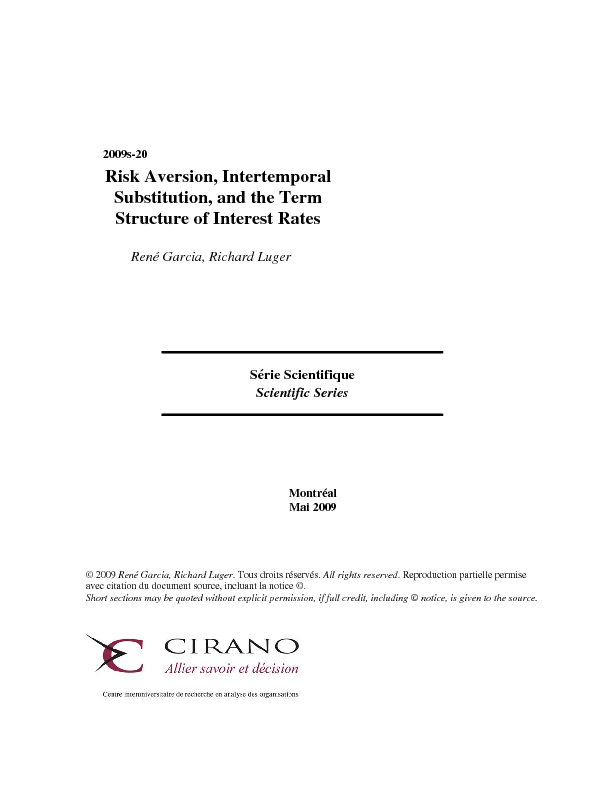Risk Aversion, Intertemporal Substitution, and the Term Structure of Interest Rates
We build and estimate an equilibrium model of the term structure of interest rates based on a recursive utility specification. We contrast it with an arbitrage-free model, where prices of risk are estimated freely without preference constraints. In both models, nominal bond yields are affine functions of macroeconomic state variables. The equilibrium model accounts for the tent-shaped pattern and magnitude of coefficients from predictive regressions of excess bond returns on forward rates and the hump-shaped pattern in the term structure of volatilities, while the reduced-form no-arbitrage model does not account for these important features of the yield curve.
[ - ]




